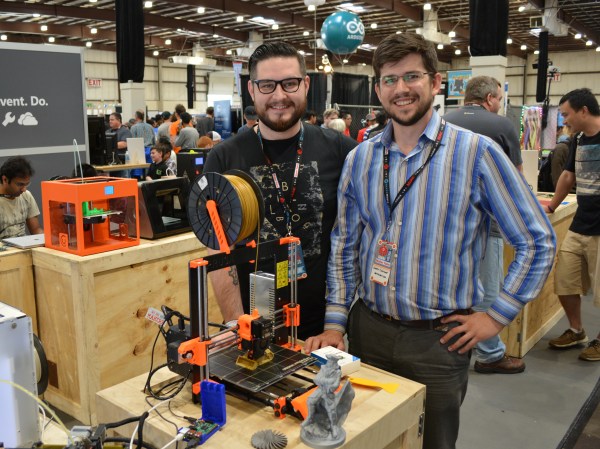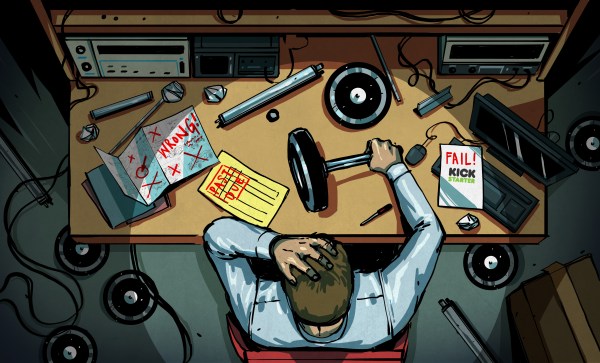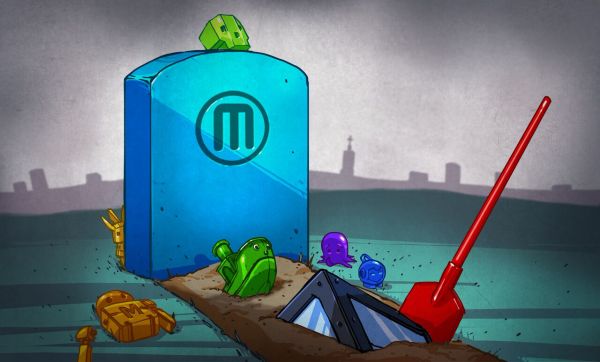A bunch of people who share a large workshop and meet on a regular basis to do projects and get some input. A place where kids can learn to build robots instead of becoming robots. A little community-driven factory, or just a lair for hackers. The world needs more of these spaces, and every hackerspace, makerspace or fab lab has its very own way of making it work. Nevertheless, when and if problems and challenges show up – they are always the same – almost stereotypically, so avoid some of the pitfalls and make use of the learnings from almost a decade of makerspacing to get it just right. Let’s take a look at just what it takes to get one of these spaces up and running well.
Business70 Articles
Prusa Shows Us The New I3 MK2 3D Printer And Where The Community Is Headed
Josef Prusa’s designs have always been trustworthy. He has a talent for scouring the body of work out there in the RepRap community, finding the most valuable innovations, and then blending them together along with some innovations of his own into something greater than the sum of its parts. So, it’s not hard to say, that once a feature shows up in one of his printers, it is the direction that printers are going. With the latest version of the often imitated Prusa i3 design, we can see what’s next.
Continue reading “Prusa Shows Us The New I3 MK2 3D Printer And Where The Community Is Headed”
Stay Scrappy, Hackers! Hardware Startups Versus Goliath
A toast to all the hackers out there who like to do it scrappy, who fight hard to get your products to work, who make your own tools and testing jigs and assembly lines in your basement, and who pound the pavement (and the keyboards) to get your product out there. Here’s to you (*clink*).
I had the fortune of a job interview recently in a big faceless company that you may have never heard of but probably use their stuff all the time. They make billions. And it was surreal. This article is about what it’s like for a scrappy start-up engineer to walk into the belly of the beast of an organization that counts its engineers in the tens of thousands. For obvious reasons, I can’t go into specific details, but let me paint for you in broad strokes what you, the hacker and entrepreneur, are up against.
When you have a company that’s been around for decades and whose yearly sales volume has more digits than some countries, everything is a few orders of magnitude bigger in scale. People, resources, volumes, everything.
Continue reading “Stay Scrappy, Hackers! Hardware Startups Versus Goliath”
Why Kickstarter Products Fail
It seems every week we report on Kickstarter campaigns that fail in extraordinary fashion. And yet there are templates for their failure; stories that are told and retold. These stereotypical faceplants can be avoided. And they are of course not limited to Kickstarter, but apply to all Crowd Funding platforms. Let me list the many failure modes of crowdfunding a product. Learn from these tropes and maybe we can break out of this cycle of despair.
Failure Out of the Gate
 You don’t hear about these failures, and that’s the point. These are crowd funded projects that launch into the abyss and don’t get any wings through printed word or exposure. They may have a stellar product, an impressive engineering team, and a 100% likelihood of being able to deliver, but the project doesn’t get noticed and it dies. Coolest Cooler, the project that raised $13 million, failed miserably the first time they ran a campaign. It was the second attempt that got traction.
You don’t hear about these failures, and that’s the point. These are crowd funded projects that launch into the abyss and don’t get any wings through printed word or exposure. They may have a stellar product, an impressive engineering team, and a 100% likelihood of being able to deliver, but the project doesn’t get noticed and it dies. Coolest Cooler, the project that raised $13 million, failed miserably the first time they ran a campaign. It was the second attempt that got traction.
The solution is to have a mailing list of interested people are ready to purchase the moment you launch, and share to everyone they know. Reach out to blogs and news organizations a month early with a press package and a pitch catered to their specific audience. Press releases get tossed. Have a good reason why this thing is relevant to their audience. Offer an exclusive to a big news site that is your target market.
The MakerBot Obituary
MakerBot is not dead, but it is connected to life support waiting for a merciful soul to pull the plug.
This week, MakerBot announced it would lay off its entire manufacturing force, outsourcing the manufacturing of all MakerBot printers to China. A few weeks ago, Stratasys, MakerBot’s parent company, released their 2015 financial reports, noting MakerBot sales revenues have fallen precipitously. The MakerBot brand is now worth far less than the $400 Million Stratasys spent to acquire it. MakerBot is a dead company walking, and it is very doubtful MakerBot will ever be held in the same regard as the heady days of 2010.
How did this happen? The most common explanation of MakerBot’s fall from grace is that Stratasys gutted the engineering and goodwill of the company after acquiring it. While it is true MakerBot saw its biggest problems after the acquisition from Stratasys, the problems started much earlier.
Ethics In Engineering: Volkswagen’s Diesel Fiasco
Every so often – and usually not under the best of circumstance – the field of engineering as a whole is presented with a teaching moment. Volkswagen is currently embroiled in a huge scandal involving emissions testing of 11 Million diesel cars sold in recent years. It’s a problem that could cost VW dearly, to the tune of eighteen Billion dollars in the US alone, and will, without a doubt, end the careers of more than a few Volkswagen employees. In terms of automotive scandals, this is bigger than Unsafe at Any Speed. This is a bigger scandal than the Ford Pinto’s proclivity to explode. This is engineering history in the making, and an enormously teachable moment for ethics in engineering.
Continue reading “Ethics In Engineering: Volkswagen’s Diesel Fiasco”
The Problem With Kickstarter: A Lack Of Transparency
Since 2010, over one and a half billion dollars has been transferred from Kickstarter backers to project creators, and with Kickstarter’s 5% cut taken on each dollar collected, that means Kickstarter has had somewhere in the neighborhood of 75 to 80 million dollars in revenue in the last five years. That’s a success by any measure, and as with this huge amount of money, questions must be asked about the transparency of Kickstarter.
This is not a post about a Kickstarter project for an impossible project, a project that breaks the laws of physics, or one that is hyped beyond all reasonable expectations. This is a post about Kickstarter itself, and it’s been a long time coming. In the past, Kickstarter has shown at least some transparency by cancelling projects that are obvious rebrandings of white label goods – a direct violation of their rules. Kickstarter has even cancelled projects that violate the laws of physics, like this wireless charging Bluetooth tag. It’s a start, but Kickstarter has a much larger problem on its plate: the Staff Pick problem.
Continue reading “The Problem With Kickstarter: A Lack Of Transparency”

















